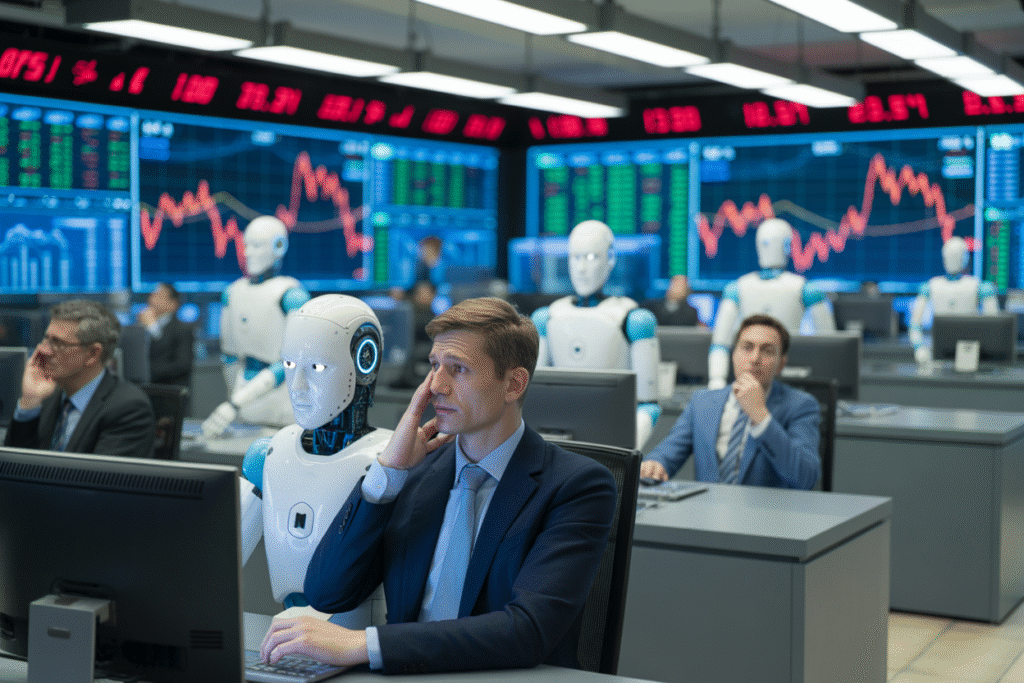Tariffs just kneecapped AI budgets—here’s why that could save your job.
Is the robot job-pocalypse on pause? Fresh data shows US tariffs are spiking chip costs, chilling investor cash, and forcing companies to rethink AI rollouts. Translation: AI replacing humans might take a back seat to profit margins. Let’s dig into the numbers and what they mean for your paycheck.
From Hype Hangover to Hard Numbers
Remember when every headline screamed that AI would steal every job by 2025? Well, the clock is ticking and the plot just thickened. Instead of mass layoffs, we’re watching investors yank cash out of overhyped startups while tariff wars slap tech stocks silly. In plain English: the AI bubble is wobbling, and real-world economics—not sci-fi nightmares—are driving the conversation. This post unpacks why the market’s cold shoulder might be the reality check we all needed.
Tariffs Crash the AI Party
Over the past three hours, MacroMicro’s data team dropped a chart that looks like a heart-attack EKG. US tariffs on Chinese semiconductors leapt from 2.4 % to 17.5 % overnight, instantly shaving billions off the Nasdaq. Translation? The chips that power your favorite AI tools just got pricier, and venture capitalists hate nothing more than shrinking margins. Suddenly, the promise of AI replacing humans feels less like destiny and more like an expensive gamble.
Why Your Job Might Be Safer Than You Think
So what happens when the cost of compute spikes? Companies freeze hiring, not unleash pink slips. Instead of replacing humans, firms are pausing AI rollouts to reassess ROI. That’s the twist no one predicted: tariffs may slow job displacement more than any ethics petition ever could. Meanwhile, investors who once threw millions at any startup with “neural” in its pitch deck are now asking boring questions like “unit economics” and “path to profitability.
The New Skill Premium
But don’t pop champagne just yet. Slower AI adoption doesn’t mean zero disruption—it means different disruption. Picture this: companies keep staff but demand they learn to wrangle AI tools to stay competitive. The winners? Workers who treat AI as a co-pilot, not a rival. The losers? Firms that cling to yesterday’s workflows while competitors slash costs with smarter, not bigger, teams.
Your Move Before the Next Headline
Bottom line: the AI replacing humans narrative just hit a speed bump named global trade policy. That’s good news for anyone who’d rather reskill than restart their career. Want to stay ahead? Start experimenting with AI tools today—before the next tariff or market swing decides your fate for you.
References
References


